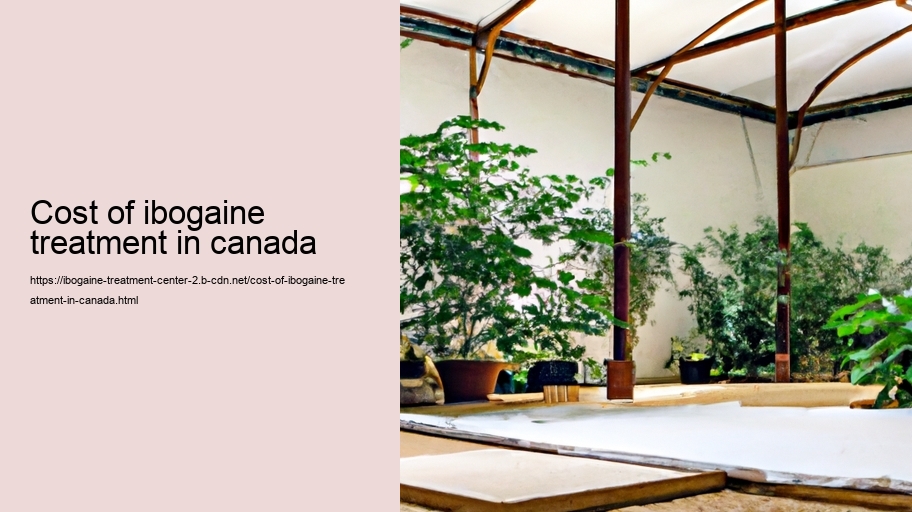Title: Exploring the Cost of Ibogaine Treatment in Canada
The pursuit of effective addiction treatment methods has led many to explore traditional and alternative therapies. Among these is ibogaine, a naturally occurring psychoactive substance derived from the roots of the African shrub Tabernanthe iboga. Known for its potential to alleviate withdrawal symptoms and reduce drug cravings, it has piqued the interest of those seeking recovery from substance abuse disorders. In this essay, we will delve into the financial aspect of ibogaine treatment in Canada, analyzing factors that contribute to its cost and considering its accessibility to those in need.
Ibogaine treatment in Canada occupies a complex legal and medical space. While not approved by Health Canada as a prescription medicine, it is also not listed under the Controlled Drugs and Substances Act, placing it in a grey area. This status affects how treatments are administered and consequently impacts their cost.
Cost Influencing Factors:
1. **Legality and Regulation**: Due to its unregulated status, ibogaine treatments are typically offered through private clinics or practitioners who operate within certain legal boundaries. The lack of government regulation can result in significant price variability based on clinic standards, practitioner expertise, and geographical location.
2. **Treatment Protocols**: A full course of ibogaine therapy involves more than just administering the substance; comprehensive pre-treatment assessments, medical monitoring during treatment, post-treatment counseling, and support services are integral parts of the process. Each step incurs expenses that are factored into the total cost.
3. **Dosage and Duration**: Individual patient needs dictate dosing requirements which directly influence costs. Some may require multiple sessions while others could respond to single administrations—each scenario presenting different pricing structures.
4 .**Facility Amenities**: The setting where ibogaine is administered varies from basic accommodations to luxurious retreats with holistic wellness services included in treatment packages—factors that significantly affect pricing tiers.
5 .**Travel Expenses**: As few centers offer this service due to its ambiguous legal standing, patients often have to bear additional travel expenses if they don't reside near a facility offering such treatments.
Average Costs:
Discussing average costs presents challenges given the variability mentioned above; however, estimates suggest that an individual session may range anywhere from CAD 5 ,000 - CAD 10 ,000 . Package deals involving extensive stays at specialized facilities could elevate this figure substantially .
Accessibility Issues:
At these price points , accessibility becomes a critical issue . Many struggling with addiction face financial hardships , making such high-cost treatments prohibitively expensive without insurance coverage—which most Canadian providers do not offer for non-approved substances like ibogaine .
Efforts towards Accessibility :
Some organizations advocate for broader access by raising awareness about ibogaines therapeutic benefits while pushing for research funding —steps they hope will lead towards recognition by health authorities eventually .
Conclusion :
The journey towards understanding addiction's complexities continues as does exploring various avenues for healing . Ibogaines intriguing potential comes with a considerable price tag in Canada—an obstacle for widespread adoption especially given current regulatory climates . Nonetheless , individuals seeking radical change have found value despite steep costs , prompting discussions around healthcare systems' roles supporting those battling addictions irrespective financial constraints .
In conclusion , while promising , until further evidence supports widespread clinical use leading regulatory changes , affordability remains one major hurdle facing Canadians interested pursuing this unique form of intervention .
